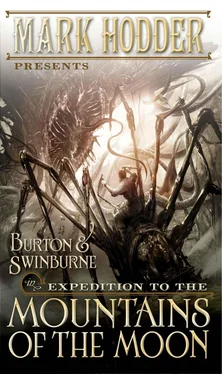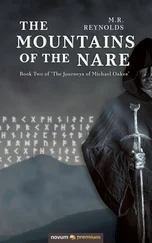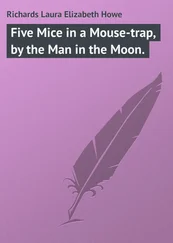Mark Hodder - Expedition to the Mountains of the Moon
Здесь есть возможность читать онлайн «Mark Hodder - Expedition to the Mountains of the Moon» весь текст электронной книги совершенно бесплатно (целиком полную версию без сокращений). В некоторых случаях можно слушать аудио, скачать через торрент в формате fb2 и присутствует краткое содержание. Жанр: sf_stimpank, на английском языке. Описание произведения, (предисловие) а так же отзывы посетителей доступны на портале библиотеки ЛибКат.
- Название:Expedition to the Mountains of the Moon
- Автор:
- Жанр:
- Год:неизвестен
- ISBN:нет данных
- Рейтинг книги:5 / 5. Голосов: 1
-
Избранное:Добавить в избранное
- Отзывы:
-
Ваша оценка:
- 100
- 1
- 2
- 3
- 4
- 5
Expedition to the Mountains of the Moon: краткое содержание, описание и аннотация
Предлагаем к чтению аннотацию, описание, краткое содержание или предисловие (зависит от того, что написал сам автор книги «Expedition to the Mountains of the Moon»). Если вы не нашли необходимую информацию о книге — напишите в комментариях, мы постараемся отыскать её.
Expedition to the Mountains of the Moon — читать онлайн бесплатно полную книгу (весь текст) целиком
Ниже представлен текст книги, разбитый по страницам. Система сохранения места последней прочитанной страницы, позволяет с удобством читать онлайн бесплатно книгу «Expedition to the Mountains of the Moon», без необходимости каждый раз заново искать на чём Вы остановились. Поставьте закладку, и сможете в любой момент перейти на страницу, на которой закончили чтение.
Интервал:
Закладка:
“I say!” Swinburne screeched. “What the dickens do you think you're playing at? Unhand me at once, you scoundrels!”
A heavily built warrior strode over. He sneered down at the diminutive poet and spat: “Kafir!”
“Bless you!” the poet replied. “Do you not have a handkerchief?”
The big man cast his eyes from Swinburne to Honesty, then to Trounce, Burton, and Krishnamurthy.
“Who leads?” he demanded.
“I do,” said Burton, in Balochi.
The man moved to stand in front of him.
“Thou has knowledge of my language?”
“Aye, and I say to thee that there be no majesty and there be no might save in Allah, the Glorious, the Great, and in his name we ask for thy mercy and thy assistance, for we have suffered severe misfortune and have a long journey before us.”
The Baloch threw his head back and loosed a roar of laughter. He squatted and looked into Burton's eyes.
“Thou speakest very prettily, Scar Face. I am Jemadar Darwaas. I lead the Disciples of Ramman. Who art thou?”
“Some call me Abdullah the Dervish.”
“Is that so?” Darwaas pointed at Herbert Spencer. “And what is that?”
“It is a man of brass. A machine in which a human spirit is housed.”
“So! A whole man in a whole mechanism this time! Like Aladdin's djan?”
“Like that, aye. He is concealed within material that protects him from the sand, for if grains of it got into him, he would die.”
While he spoke, Burton took stock of the men into whose clutches his expedition had fallen. He judged there to be about sixty of them-all hardened desert warriors-marauders from Belochistan a thousand miles to the northeast.
“Thou art a storyteller, Abdullah.”
“I speak the truth.”
“Then I would cut through the material and look upon this miraculous brass man of thine.”
“In doing so, thou shall kill him,” Burton advised, “and what would he then be worth?”
Jemadar Darwaas grinned through his beard. “Ah,” he said. “Now, O Abdullah, thou art truly speaking my language! He has value, eh?”
“The British government would pay a substantial ransom for him, and for these others, too,” Burton said, indicating his companions with a jerk of his head. “Especially for the women, if they are unharmed.”
Darwaas grunted. He drew his dagger and held it up, examining its sharp point. His eyes flicked from the blade to Burton's dark eyes. With a fluid motion, he stood, paced away, and began to speak in low tones with a group of his men.
William Trounce leaned close to Burton and whispered, “What was all that about?”
“I'm trying to talk him into holding us for ransom.”
“Why do that?”
“Because it'll buy us some time,” the king's agent replied.
Less than half an hour later, the brigands finished setting up their camp on the edge of the oasis, and the two women were taken to it and placed in a guarded tent.
Darwaas returned to the remaining captives, drew his scimitar, and levelled the point at Burton's face. “Thy people will be held until the British consul in Jeddah pays for their release,” he said. “But thee, Abdullah the Dervish, thee I shall fight.”
“Fight? For what purpose?”
“For no purpose other than I desire it.”
The Jemadar ordered his men to clear a circular area. The prisoners were dragged to its boundary and the bandits gathered around. Burton was yanked up and pushed forward. A warrior threw down a scimitar. It landed at the explorer's feet, and he bent, picked it up, and noted that it was a well-balanced blade.
Sir Richard Francis Burton was a master swordsman, but he much preferred fighting with a point than with an edge. The point demanded skill and finesse; the edge required mainly strength, speed, and brutality, though there were also a few techniques associated with it, in which, fortunately, he was well schooled.
He held the blade, narrowed his eyes at his opponent, and sighed.
Before leaving the wreck of the Orpheus , he'd attached to his belt a leather holster, and in that holster there was a very odd-looking pistol. It was green and organic-actually a eugenically altered cactus-and it fired venomous spines that could knock a man unconscious in an instant. His captives had not removed it, and he wished he could draw it now, for he would far prefer to render the leader of the Disciples of Ramman senseless than to hack at him with a blade. Sword cuts, unless they were to the head, neck, or stomach, very rarely killed quickly. Instead, they condemned the victim to hours-even days-of excruciating agony, often followed by infection and a lingering death. He knew, however, that the moment he went for his gun, matchlocks would be jerked up and fired at him.
Jemadar Darwaas stepped closer and brandished his scimitar. “How didst thou come by that scar on thy face, Abdullah?” he asked.
“A spear,” Burton responded. “Thrust by an Abyssinian.”
“Didst thou kill him?”
“No.”
“That was a mistake. My people say: ‘When thy enemies attack-’”
“'-bathe in their blood,'” Burton finished.
“Ha! Thy knowledge is impressive. Hast thou lived among Allah's children?”
“I am Hajji.”
“What? A pilgrim? A believer? I did not know. Now I shall honour thee doubly after I have spilled thy guts.”
Darwaas suddenly lunged forward and swung his sword at Burton's head. The king's agent deflected it with ease and slashed back at his opponent, slicing through the front of Darwaas's robe. The Baloch jumped back and exclaimed, “Thou art practised with the sword, then?”
“Aye,” said Burton, circling slowly. “And these are designed for fighting from horseback, not for face-to-face combat. Nevertheless, there are tactics that a man can employ with them when on foot. For example-” He paced forward, ducked, and, balancing on one heel, whipped around in a full circle, using his momentum to sweep his scimitar upward at a twenty-degree angle. Darwaas barely had time to react, only just managing to place his weapon between himself and Burton's blade, and when the two scimitars clanged together, his own was forced back hard against him, sending him staggering.
Burton immediately pressed his advantage, striking at his opponent's right side-a blow that was, again, turned aside with difficulty.
Darwaas teetered off balance, stumbled, and gasped, “By Allah! Thou art considerably more than I expected!”
“A man should not be precipitous in his choice of enemy,” Burton advised. “And I am puzzled that thou hath chosen me. Wert thou paid to do so?”
“Aye, 'tis the case.”
“When I told thee of the man of brass, thou didst exclaim, ‘A whole man in a whole mechanism this time!’ Perhaps, then, thou hast seen a man partially of metal? Mayhap it was his head that was half of brass, and this man was your paymaster?”
John Speke.
“I do not deny it. Enough talk. Let us fight.”
Burton transferred his scimitar to his left hand. “Keep thy body loose, Jemadar, and control thy blade with the wrist, not with the entire arm. Now, strike at me.”
“Art thou so confident?”
“Strike!”
The Jemadar gave a grimace. The duel wasn't going at all the way he'd have liked. He spat onto the sand and crouched a little, his sword arm held out. The two men moved around one another, their dark eyes locked.
With such speed that the movement was almost a blur, Darwaas launched himself at Burton and sliced sideways. His blade hit his adversary just below chest level, but Burton was braced against it, with his own weapon shielding him closely, held point downward, tight against his body from shoulder to mid-thigh. He immediately swept it out, up, and around, hooking it beneath the bandit's scimitar. He stepped in with knees bent and pushed upward. Darwaas's sword was instantly levered right out of his hand.
Читать дальшеИнтервал:
Закладка:
Похожие книги на «Expedition to the Mountains of the Moon»
Представляем Вашему вниманию похожие книги на «Expedition to the Mountains of the Moon» списком для выбора. Мы отобрали схожую по названию и смыслу литературу в надежде предоставить читателям больше вариантов отыскать новые, интересные, ещё непрочитанные произведения.
Обсуждение, отзывы о книге «Expedition to the Mountains of the Moon» и просто собственные мнения читателей. Оставьте ваши комментарии, напишите, что Вы думаете о произведении, его смысле или главных героях. Укажите что конкретно понравилось, а что нет, и почему Вы так считаете.












